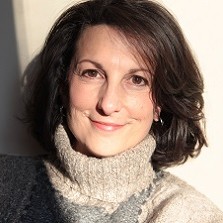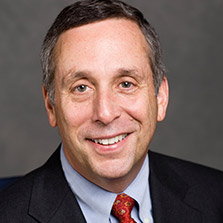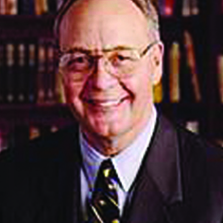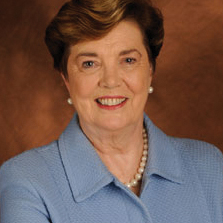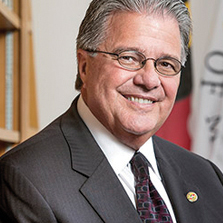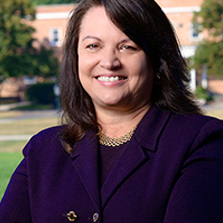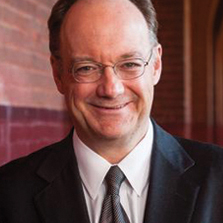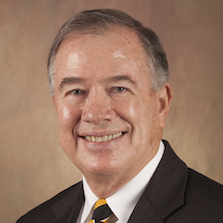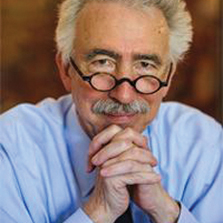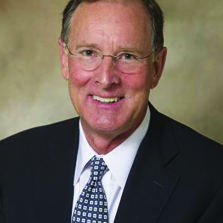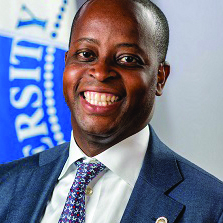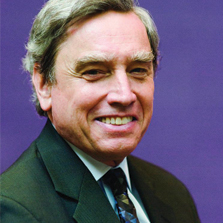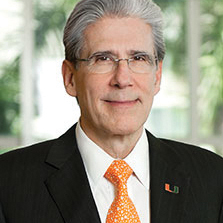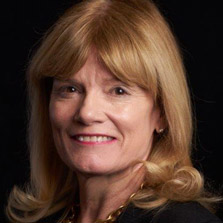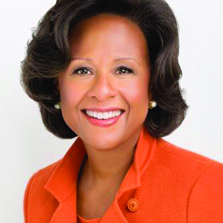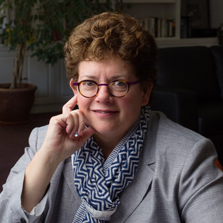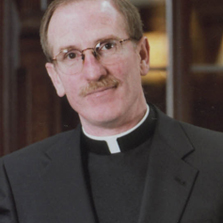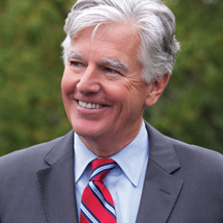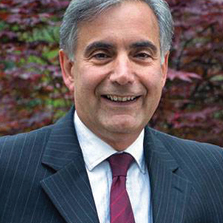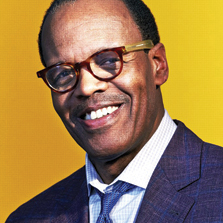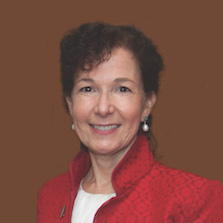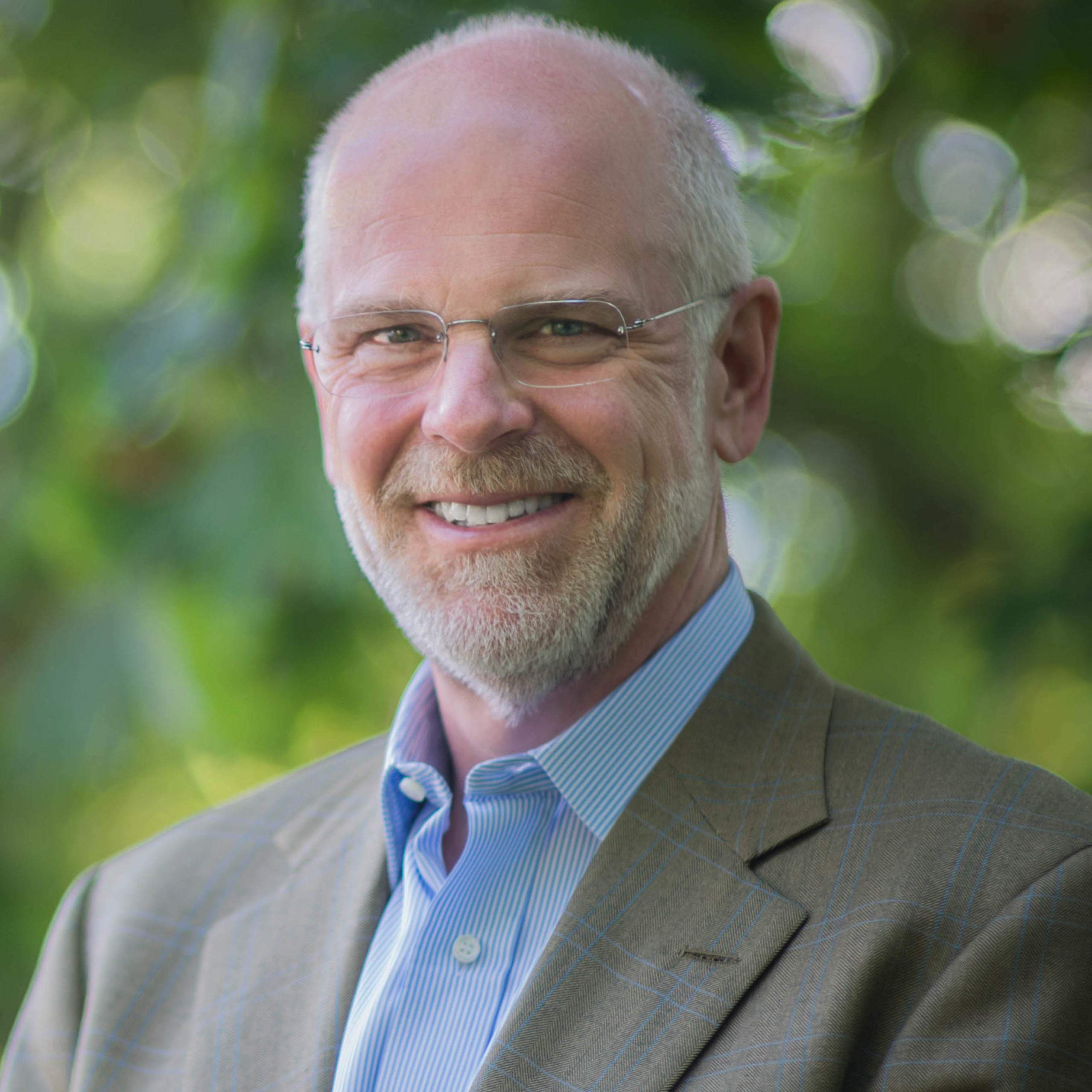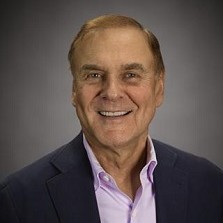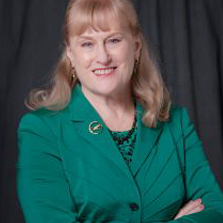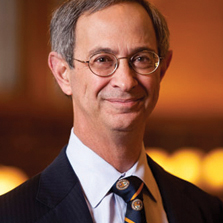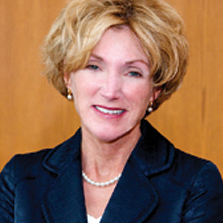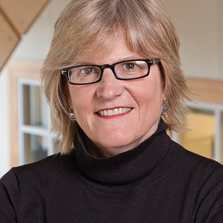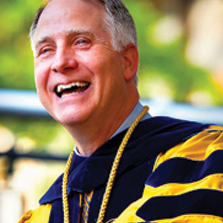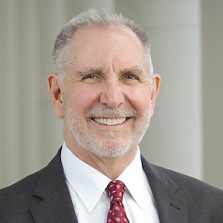Attendees
Amelia M. Arria, Ph.D.
Center on Young Adult Health and Development
Amelia M. Arria, Ph.D. is currently the Director of the Center on Young Adult Health and Development at the University of Maryland School of Public Health and an Associate Professor in the Department of Behavioral and Community Health.
Read More
As a first-generation college student, she received a B.S. in Human Development from Cornell University, a Ph.D. in Epidemiology from the University of Pittsburgh School of Public Health and completed postdoctoral training at the Johns Hopkins University Bloomberg School of Public Health. She has authored more than 150 scientific peer-reviewed publications, numerous white papers and book chapters, and is the recipient of several major grant awards from foundations, and state and federal agencies. Her longstanding research career has focused on mental health and substance abuse among adolescents and young adults. She has also completed studies related to mental health service utilization, predictors of suicidal behavior, prenatal substance use, and evaluations of addiction treatment. In 2003, she was awarded a major grant from the National Institutes of Health to conduct a large longitudinal prospective study of health-risk behaviors among college students. That study has made major contributions to the scientific literature regarding the mental health needs of young adults and the risk factors and consequences of substance use among college students. Currently, a main focus area of her work is the connections among untreated mental health conditions, substance use and human capital, as measured by academic achievement, employment and health status. She is passionate about translating research findings for practical purposes to be used by parents, policy makers and educational professionals. She has a leadership role in the Maryland Collaborative to Reduce College Drinking and Related Problems, a policy initiative that brings together 14 universities in the state of Maryland to address the problem of excessive alcohol consumption and its consequences on their campuses and in their communities.
Read Less
Lawrence Bacow, JD, MPP, PhD
Tufts University, Emeritus
President Emeritus Lawrence S. Bacow served as the twelfth President of Tufts University from September 2001 through July 2011. During his ten years as President, he advanced the university’s role as a leader in teaching, research, and public service.
Read More
Within Tufts, he championed academic excellence and placed a premium on open communication and close engagement with students, faculty, staff, and alumni. Nationally, he became well known as an advocate of broader access to higher education and the importance of need-based financial aid. Internationally, he played an important role in efforts to strengthen universities’ commitment to civic engagement.
Under Dr. Bacow’s leadership, Tufts built on its historic strengths to enhance the undergraduate experience, deepen graduate and professional education and research in critical fields, broaden international engagement, and foster active citizenship among members of the university community. He emphasized increased collaboration among Tufts’ eight schools and generated creativity and enthusiasm for interdisciplinary study.
Initiatives in undergraduate education and student life during Dr. Bacow’s tenure built on the recommendations of a comprehensive review completed in 2003, and he himself served as an advisor to first- and second-year undergraduates throughout his time at Tufts. He has long advocated for broadening access to higher education and the importance of need-based financial aid.
As President, Dr. Bacow was also committed to strengthening Tufts through effective outreach to alumni, parents, and friends, speaking to them with welcome candor about pressing priorities. During his tenure, Tufts benefited from unprecedented donor generosity and completed its historic Beyond Boundaries campaign, which raised $1.2 billion to support the university’s highest academic priorities. He strengthened relations between Tufts and its host communities, and the annual President’s Marathon Challenge he established in 2003 brought members of the Tufts community together to run and volunteer at the Boston Marathon.
A lawyer and economist whose research focuses on environmental policy, Dr. Bacow is an internationally recognized expert on non-adjudicatory approaches to the resolution of environmental disputes. Prior to coming to Tufts, he spent 24 years on the faculty at the Massachusetts Institute of Technology, where he held the Lee and Geraldine Martin Professorship of Environmental Studies. He served as the elected Chair of the MIT Faculty and subsequently as Chancellor, one of the Institute’s two most senior academic officers. He has also held visiting professorships and research appointments at five universities abroad.
Dr. Bacow received his S.B. in economics from the Massachusetts Institute of Technology, his J.D. from Harvard Law School, and his M.P.P. and Ph.D. from Harvard’s Kennedy School of Government. A Fellow of the American Academy of Arts and Sciences, he is the recipient of five honorary degrees.
After stepping down as President of Tufts after ten years of service, Dr. Bacow served for three years as President-in-Residence in the Higher Education Program at Harvard’s Graduate School of Education. He is currently the Leader-in-Residence at the Center for Public Leadership at Harvard’s Kennedy School. He is a Senior Advisor to Ithaka S+R and was one of the authors of its major 2012 study of the barriers to the adoption of online learning systems in U.S. higher education. He is also a member of the Lincoln Project of the American Academy of Arts and Sciences to investigate the future of the public research university.
Dr. Bacow is a member of the Harvard Corporation. He also serves on the boards of Liquidnet, Loews Corporation, Henry Schein, Inc. and TIAA-CREF
Read Less
Robert Berdahl, MA, PhD
University of California, Berkeley, Chancellor Emeritus
Robert M. Berdahl became president of the Association of American Universities (AAU) in May 2006. Prior to this position, Berdahl served as chancellor of the University of California, Berkeley from 1997 to 2004. As chancellor at Berkeley, he led the campus in a major effort to renew its infrastructure.
Read More
During his tenure, more than $800 million was invested in a comprehensive plan to renovate and seismically upgrade numerous buildings, rendering them more suitable for modern scientific research and teaching. He worked to restore library collections to a preeminent position and undertook the construction of two new library buildings. Under his leadership, two new major interdisciplinary initiatives were undertaken: the Health Sciences Initiative and the Center for Information Technology Research in the Interest of Society.
An advocate of enhancing and humanizing undergraduate learning, Berdahl expanded the highly popular Freshman Seminar Program, in which senior faculty teach small freshman classes. To integrate student life more fully with a challenging academic environment, six new residence halls were constructed. As the first Berkeley chancellor to cope with the decline of minority enrollment after the elimination of affirmative action in California, Berdahl strengthened campus outreach programs for disadvantaged students in the public schools. Following his tenure as chancellor at Berkeley, Berdahl remained as a faculty member.
Prior to going to Berkeley, Berdahl served as president of The University of Texas at Austin from 1993 to 1997. While at Texas, he initiated a master plan for the physical development of the campus, worked to introduce data-driven planning in the allocation of resources to the academic colleges and schools, and endeavored to build a stronger sense of community within a large, diverse campus.
While at The University of Texas and at Berkeley, Berdahl was an active member of AAU, including service as its executive committee chair.
Berdahl began his academic career in the history department at the University of Massachusetts Boston in 1965. He joined the history faculty at the University of Oregon in 1967 and served as Oregon’s Dean of the College of Arts and Sciences from 1981 to 1986, when he left Oregon to become Vice Chancellor of Academic Affairs at the University of Illinois at Urbana-Champaign.
Berdahl received his B.A. from Augustana College in Sioux Falls, South Dakota, his M.A. from the University of Illinois, and his Ph.D from the University of Minnesota, which also awarded him an honorary Doctorate of Science in 1997. In 2010, New York University awarded him an honorary Doctorate of Humane Letters, and he has received an honorary doctorate and distinguished alumnus award from Augustana College, a Fulbright Research Fellowship, and an NEH Independent Study and Research Fellowship. He has been a Research Associate at the Institute for Advanced Study in Princeton and at the Max Planck Institute for History in Goettingen, Germany. Berdahl was elected to the American Academy of Arts and Sciences in 2001. He is the author of one book and the co-author of another, and has written numerous articles dealing with German history.
Read Less
Molly Broad, MA
American Council of Education
A leading spokesperson for American higher education, Molly Corbett Broad became the twelfth president of ACE in 2008. She is the first woman to lead the organization since its founding in 1918.
Read More
Broad came to ACE from the University of North Carolina (UNC), where she served as president from 1997-2006, leading UNC through a period of unprecedented enrollment growth. Due in large part to the success of the Focused Growth Initiative, minority enrollment at UNC grew at more than double the rate of the overall student body during her tenure. She also spearheaded the creation of a need-based financial aid program for in-state undergraduates and the creation of the College Foundation of North Carolina.
Broad held a number of administrative and executive positions at several universities prior to her tenure at UNC. At the California State University system, she served as senior vice chancellor for administration and finance from 1992–93, and as executive vice chancellor and chief operating officer from 1993 until her election as UNC president. Earlier in her career, Broad served as the chief executive officer for Arizona’s three-campus university system (1985–92) and in a succession of administrative posts at Syracuse University (1971–85).
Broad has written and spoken widely on strategic planning for higher education, K–16 partnerships, information technology, globalization and biotechnology. She currently holds seats on the boards of PBS (the Public Broadcasting Service) and the Parsons Corporation. She is past chair of the National Association of State Universities and Land-Grant Colleges, past chair of the Internet 2 board of trustees and past president of the International Council for Distance Education.
She has served on the boards and executive committees of the Business-Higher Education Forum; Council on Competitiveness; National Association of University System Heads; and the Centenary Committee for Fudan University in Shanghai, China.
Broad earned a General Motors Scholarship to Syracuse University, where she graduated Phi Beta Kappa with a baccalaureate degree in economics from the Maxwell School of Citizenship and Public Affairs. She holds a master’s degree in the field from The Ohio State University.
Read Less
Robert Caret, PhD
University of Maryland System
Robert L. Caret joined the University System of Maryland (USM) as chancellor on July 1, 2015. He was inaugurated as the system’s fourth chancellor on November 19, 2015. No stranger to Maryland, Caret is a former president of Towson University, a USM institution.
Read More
During his 20 years of public higher education leadership, Caret has earned respect for his successful work in several areas, including helping to ensure college affordability, academic excellence, and the efficient use of resources. In addition, he is credited with emphasizing university partnerships to enhance students’ experiences and to impact regional progress in economic and workforce development and other areas.
Before joining USM as chancellor, Caret was president of the University of Massachusetts System (UMass) from 2011 until 2015. Throughout his UMass tenure, he has emphasized efficiency, cost-saving initiatives, and productive working relationships with Massachusetts government and business leaders. His successful pursuit of a 50-50 funding formula for UMass resulted in the state and students contributing equally to the university’s general education program and a 22 percent increase in the base budget for two years. He also secured additional state funding, allowing UMass to freeze tuition and mandatory fees for in-state undergraduate students for two consecutive years.
Prior to joining UMass, Caret was president of Towson University (TU) from 2003 to 2011, where he also served as a faculty member, dean, executive vice president and provost during his more than 25-year tenure there. At Towson, he created partnerships with regional business, non-profit and civic organizations; raised student graduation rates; and undertook a capital fundraising and building campaign to support campus infrastructure improvements. He oversaw an increase in the university’s online courses and expanded the availability of TU courses at regional higher education centers. He was instrumental in establishing Towson University in Northeastern Maryland , which offers transfer students the flexibility to pursue a four-year degree after completing an associate’s degree at a community college.
From 1995 to 2003, Caret served as president of San Jose State University (SJSU), part of the California State University System. He is credited with bringing a vision for SJSU as the metropolitan university of Silicon Valley.
Active in the national higher education community, Caret serves on the National Association of System Heads, American Association of State Colleges and Universities, Association of Public and Land-grant Universities, and the Business-Higher Education Forum boards. He also is a member of the National Security Higher Education Advisory Board, Higher Ed for Higher Standards Advisory Council, and the Government University Industry Research Roundtable.
Caret also serves on a number of boards in Maryland, including the Greater Baltimore Committee, Economic Alliance of Greater Baltimore, University of Maryland Medical System, College Savings Plans of Maryland, World Trade Center Institute, Maryland Council on Economic Education, BioHealth Innovation, Inc., and the Maryland Economic Development Corporation. Additionally, he serves on The Center Club Strategic Planning Advisory Committee.
Caret’s contributions to and leadership in Maryland have been recognized by The Daily Record, which named him among its 2016 list of Influential Marylanders.
Caret holds a Ph.D. in organic chemistry from the University of New Hampshire and a bachelor’s degree in chemistry from Suffolk University in Boston.
Read Less
Kim Cline, MBA, JD, EdD
Long Island University
Dr. Kimberly R. Cline became the 10th president of Long Island University in July 2013, assuming the leadership of one of the nation’s largest and most comprehensive private universities. She oversees a nearly 90-year old institution that encompasses multiple campuses, educates more than 20,000 students and offers over 500 undergraduate, graduate, and doctoral degree programs and certificates.
Read More
In her nearly two years as president, Dr. Cline has moved the University into the emerging field of engaged learning, which combines rigorous academic instruction with real-world training and entrepreneurship. The University has become a leader in providing real-life opportunities in such fields as technology, public relations, financial investing, and fashion merchandising. A growing number of LIU student-run businesses require students to execute business decisions, building their potential to succeed in a career prior to entering the workplace.
The University has experienced the strongest operating results in its history. Both Standard and Poor’s and Moody’s upgraded their ratings on LIU’s outlook, citing improved operating margins and strengthened financial resources.
Laura L. Anglin, president of the Commission of Independent Colleges and Universities, has cited Dr. Cline’s “passionate vision for higher education as an agent of economic mobility,” characterizing her as “a myth-buster who eloquently articulates how private colleges and universities serve a diverse population.”
Dr. Cline is a board member of the Center for Creative Leadership, the fourth largest global provider of executive education, the Long Island Association, the Northeast Athletic Conference, and the East Coast Athletic Conference Council of Presidents. She serves as vice chair for the Commission of Independent Colleges and Universities, co-chairs New York Campus Compact’s executive board, and is college chair of the Long Island Chapter of the New York Blood Center.
She has participated in and presented at numerous national and regional conferences, including those of the National Science Foundation ADVANCE program, American Association of Colleges and Universities, Hispanic Association of Colleges and Universities, American Council on Education, and the National Center for Study of Collective Bargaining for Higher Education Professions.
Prior to joining the University, Dr. Cline served as president of Mercy College, where she gained a reputation as an academic and institutional innovator, increasing the size and instructional quality of the institution and tripling its endowment. Prior, she was Vice Chancellor and Chief Financial Officer of the State University of New York, coordinating operations for all 64 campuses and serving as a senior officer responsible for SUNY’s $10 billion dollar budget.
Dr. Cline’s degrees include a Bachelor in Science in Industrial Relations, Master of Business Administration, Juris Doctor, and Doctor of Educational Administration.
Read Less
John DeGioia, PhD
Georgetown University
John J. DeGioia is the 48th President of Georgetown University. For nearly four decades, Dr. DeGioia has worked to define and strengthen Georgetown University as a premier institution for education and research.
Read More
A graduate of Georgetown, Dr. DeGioia served as a senior administrator and as a faculty member in the Department of Philosophy before becoming president on July 1, 2001. He continues to teach an Ignatius Seminar each fall, which is part of a program offering first year students the opportunity to encounter unique courses of study inspired by the Jesuit educational theme of cura personalis (“care for the whole person”).
As President, Dr. DeGioia is dedicated to deepening Georgetown’s tradition of academic excellence, its commitment to its Catholic and Jesuit identity, its engagement with the Washington, D.C. community, and its global mission. Under his leadership, Georgetown has become a leader in shaping the future landscape of higher education and has raised more than $1.5 billion through a campaign dedicated to enhancing the lifelong value of a Georgetown education.
Dr. DeGioia is deeply engaged in addressing broader issues in education. He currently serves as the Chair of the Board of Directors of the American Council on Education (ACE), and of the Forum for the Future of Higher Education; he also serves as a member of the Board of Directors of the Carnegie Corporation of New York, and the National Association of Independent Schools. Dr. DeGioia also serves on the Division I Committee on Academics for the NCAA, and as a commissioner on the Knight Commission on Intercollegiate Athletics. He is a member of the World Economic Forum’s (WEF) Global Agenda Council on Values and WEF’s Global University Leaders Forum.
Dr. DeGioia earned a bachelor’s degree in English from Georgetown University in 1979 and a Ph.D. in Philosophy from the University in 1995.
Prior to his appointment as president in 2001, Dr. DeGioia held a variety of senior administrative positions at Georgetown, including Senior Vice President and Dean of Student Affairs.
He has been presented with a Lifetime Achievement Award for Excellence in Academia by the Sons of Italy, and the “Catholic in the Public Square Award” by Commonweal (2012). He was honored as a “Brave Thinker” by The Atlantic (2012), and as “Washingtonian of the Year” by Washingtonian magazine (2008).
He has received Honorary Degrees from Miami Dade College (2008); Loyola University, Maryland (2009); Queens University, Belfast (2009); Sacred Heart University (2011); and Mount Aloysius College (2015). He has also received an honorary fellowship at Glyndŵr University (2010), as well as the “Esteemed Friend” award from Sophia University in Tokyo (2014), and was elected a member of the American Academy of Arts and Sciences (2010).
Read Less
Brady Deaton, MA, MS, PhD
University of Missouri, Chancellor Emeritus
Brady J. Deaton was Chancellor of the University of Missouri 2004-2013 and now serves in emeritus status and as Director of the Deaton Institute for University Leadership in International Development at Missouri. He was appointed Chair of BIFAD by President Obama in 2011 and reappointed in 2012 for a four year term.
Read More
Growing up on a family farm in Kentucky and furthered by his participation in 4-H, he attended the University of Kentucky for a bachelor’s degree in agricultural economics and a master of arts degree in diplomacy and international commerce. He received a master of science and doctorate degrees in agricultural economics from the University of Wisconsin in 1972. He also served as a Peace Corps volunteer in Thailand, 1962-1964, where he taught vocational agriculture in the Thai language.
Deaton began his academic career as a faculty member in agricultural economics at the University of Tennessee. During this time, he was appointed as staff director of the Special Task Force on Food for Peace for the U.S. Department of Agriculture in Washington, D.C. He next accepted a professorship at Virginia Polytechnic Institute and State University in the Department of Agricultural Economics, where he also served as coordinator of the Rural Development Research and Extension Program and later as associate director of the Office for International Development.
In 1989, Deaton moved to the University of Missouri where he was professor and chair in the Agricultural Economics Department and the Social Science Unit leader in the College of Agriculture, Food and Natural Resources. He was appointed chief of staff in the Office of the Chancellor in December, 1993, and became deputy chancellor in 1997. He was promoted to provost in 1998 and named executive vice chancellor for academic affairs in 2001. He has published well over 100 academic journal articles, plus other books and publications.
He has worked in many countries to strengthen their capacity for agricultural and economic development, and has received three honorary degrees from universities in Thailand and Korea. He was elected to the Missouri Cooperatives Hall of Fame. In 2014, he received the Missourian Award and in 2015 was named to the Alumni Hall of Fame of the University of Kentucky.
Deaton served as chair of the Academic Affairs Council of the Association of Public and Land-grant Universities (APLU) and participates in advisory roles with the U.S. Department of Agriculture. He completed a two-year term as chair of the Missouri Council on Public Higher Education and was chair of the Big 12 Conference Board of Directors. He served as a Board member of the National Foundation of Credit Counselors and is currently a Board member of the Online Computer Library Center (OCLC).
He is a recipient of the Malone Award from the APLU for furthering international education in public higher education, was a member of the board of the Donald Danforth Plant Science Center throughout his time as Chancellor, and served on the International Committee of the Association of American Universities (AAU). During April, 2014 and in 2015, Deaton served as a “Distinguished Guest in Residence” at New York University.
Read Less
Nicholas Dirks, PhD
University of California, Berkeley
Nicholas B. Dirks became the 10th chancellor of the University of California, Berkeley on June 1, 2013. An internationally renowned historian and anthropologist, he is a leader in higher education and well-known for his commitment to and advocacy for accessible, high-quality undergraduate education in the liberal arts and sciences, to the globalization of the university, and to innovation across the disciplines as well as in applied and basic fields.
Read More
Before coming to Berkeley, Dirks was the executive vice president for the arts and sciences and dean of the faculty at Columbia University, where, in addition to his work on behalf of undergraduate programs, he improved and diversified the faculty, putting special emphasis on interdisciplinary and international initiatives. The Franz Boas Professor of Anthropology and History, Dirks joined Columbia in 1997 as chair of the anthropology department. Prior to his appointment at Columbia, he was a professor of history and anthropology at the University of Michigan for 10 years, before which he taught Asian history and civilization at the California Institute of Technology.
Dirks has held numerous fellowships and scholarships and received several scholarly honors, including a MacArthur Foundation residential fellowship at the Institute for Advanced Study at Princeton, a Guggenheim Fellowship, and the Lionel Trilling Award for his book Castes of Mind. He is a fellow of the American Academy of Arts and Sciences, and serves on numerous national and international bodies, as adviser or member of the board. He is also a Fellow at the Council on Foreign Relations.
Read Less
William Fox, MDiv, PhD
St. Lawrence University
William L. Fox ’75 is the 18th president and a senior lecturer in the Department of History at his undergraduate alma mater, St. Lawrence University. From 2003 to 2009, he served as president and senior lecturer in philosophy, religion, and history at Culver-Stockton College in Missouri.
Read More
In the previous five years, Fox was special assistant to the president at Goucher College in Maryland. Earlier in his career, he served as a faculty member at Claremont Theological School, Montgomery College, and Howard University. He received a Master of Divinity degree from Harvard University in 1978 and a Ph.D. in American religious history from George Washington University in 1989.
President Fox is unwavering in his belief that a liberal arts education is the best investment with the greatest return possible in both moral and material terms. He credits his liberal arts background as the foundation for his own personal and professional varieties of opportunity. He describes a liberal arts degree as intrinsic and personal in accrued value, one that opens doors and possibilities, never sealing anyone’s fate.
A St. Lawrence experience, he says, is distinguished from other university experiences by a deeply-rooted sense of community with shared values and respect for diversity. It emphasizes “Three R’s”: Relationships, Research, and Rhetoric. He constantly affirms the university’s commitment that every student will deeply connect with a professor, an administrator, or coach who will positively influence her of his life as the one who made a difference; that every student will have access to resources for significant primary research and experiential learning in his or her discipline; and that every student will graduate with sharpened abilities for oral and written communications.
As a scholar, President Fox has published three books: a study of Harvard theologian Willard L. Sperry (1991), Lodge of the Double-Headed Eagle: Two Centuries of Scottish Rite Freemasonry (1999), and the award-winning Valley of the Craftsmen (2001). He also was the founding and general editor of a 10-volume book series in church history studies by Peter Lang Publishing.
President Fox has a variety of published essays on the necessity of liberal arts learning in Inside Higher Education, Best Practices in Higher Education and The Huffington Post, and broadcast media such as WAMC and WPBS. In recognition of his leadership in higher education, the Council of Independent Colleges elected him to its Board of Trustees in January 2011. He also serves as a team leader for the Middle States Commission on Higher Education. In 2015, he was appointed to the Commission on Independent Colleges and Universities (cIcu) Board of Trustees.
Read Less
Wayne A.I. Frederick, MD, MBA
Howard University
As the 17th President of Howard University, Dr. Wayne A. I. Frederick is dedicated to extending the legacy of Howard University as a world-renowned academic and research institution. Dr. Frederick has a deeply personal relationship with Howard University and represents the mosaic of the 80,000 + living alumni who are connected to the University as well as the students, staff and faculty members who are invested in Howard University’s success.
Read More
The focus of Dr. Frederick’s administrative priorities, along with his team, align with the initial charter of Howard University: to provide educational opportunities to students who otherwise would not have access to education. As Howard’s 17th president, Dr. Frederick’s goal is to enhance the Howard University legacy, ensure that the University maximizes its impact and that its students receive a well-rounded educational experience.
Dr. Frederick’s devotedness to Howard University as a triple alumnus spans more than two decades, beginning with his enrollment as an advantageous 16-year-old student. Born in Port of Spain, Trinidad, he was admitted to Howard University with the dream of becoming a physician. His passion to serving and to heal was driven by the personal impact of sickle cell anemia, a hereditary disease that he has lived since birth. While at Howard, he earned the Bachelor of Science and Doctor of Medicine degrees and completed his surgical residency training at Howard University Hospital. Since his return to Howard University in 2006, Dr. Frederick has served as Interim President, Provost and Chief Academic Officer, Associate Dean in the College of Medicine, Division Chief in the Department of Surgery, Director of the Cancer Center and Deputy Provost for Health Sciences. He also earned a Master of Business Administration degree.
A distinguished researcher and surgeon, Dr. Frederick is the author of numerous peer-reviewed articles, book chapters, abstracts and editorials. He has also received various awards honoring his outstanding scholarship and service. In June 2014, the United States Congress recognized him for his contributions toward addressing health disparities among African Americans and other historically underrepresented groups. In October 2015, he was appointed to the Board of Directors of Mutual of America Life Insurance Company. In May 2016, he was appointed to the Board of Advisors for the White House Initiative on Historically Black Colleges and Universities (HBCUs). The Board of Advisors provides advice to the President of the United States and the Secretary of Education on methods, programs and strategies to strengthen HBCUs. In (insert month and year) Prime Minister Rowley appointed Dr. Frederick to the Health Review Committee for Trinidad and Tobago. Finally, in April 2016, Dr. Frederick became an official member of the American Surgical Association, ASA is recognized as the nation’s oldest and most prestigious surgical organization.
Not only has Dr. Frederick conducted groundbreaking research on the topic of unconscious bias in academic medicine but has also presented his research findings to scores of national and international audiences, including recommended changes to pedagogy, curriculum reform and inter-professional instruction. Through his experience as a scholar and an administrator, Dr. Frederick continues to develop innovative solutions to focus on the institutional priorities of his beloved alma mater and support the success of its students.
Dr. Wayne A. I. Frederick is a true son of Howard University—a proud and loyal exemplar of Howard University’s motto, Veritas et Utilitas: Truth and Service.
Read Less
Richard Freeland, PhD
Northeastern University, Emeritus
Richard Freeland began his career in higher education in 1970 in the President’s Office of the University of Massachusetts, where he was an Assistant to the President before moving to the new Boston campus for the next twenty-two years, serving in a succession of roles including founding Dean of the College of Professional Studies and Dean of Arts and Sciences.
Read More
In 1992 he became Vice Chancellor for Academic Affairs at the City University of New York in the central office of CUNY’s 21 campus system. In 1996 he came back to Boston to be President of Northeastern University for the next ten years. In 2009 he was appointed Massachusetts Commissioner of Higher Education, stepping down from that position in 2015.
Dr. Freeland has held academic appointments in the Departments of History at UMass/Boston, the Graduate Center of the City University of New York, and Northeastern University, as well as visiting appointments in Higher Education at Harvard University and Clark University. He has taught courses in twentieth century American History and Urban Higher Education. His publications include: The Truman Doctrine and the Origins of McCarthyism (Knopf, 1972), a study of the early years of the Cold War, and Academia’ Golden Age (Oxford, 1992), a history of Universities in Massachusetts between 1945 and 1975.
Dr. Freeland is a graduate of Amherst College and has a PhD in American Civilization from the University of Pennsylvania.
Read Less
Julio Frenk, MD, MPH, PhD
University of Miami
Dr. Julio Frenk, a noted leader in global health and a renowned scholar, became the sixth president of the University of Miami on August 16, 2015. He also holds an academic appointment there as Professor of Public Health Sciences at the Leonard M. Miller School of Medicine.
Read More
Prior to joining the University of Miami, Dr. Frenk was Dean of the Faculty at the Harvard T.H. Chan School of Public Health since January 2009. While at Harvard, he was also the T & G Angelopoulos Professor of Public Health and International Development, a joint appointment with the Harvard Kennedy School of Government.
He served as the Minister of Health of Mexico from 2000 to 2006. There he pursued an ambitious agenda to reform the nation’s health system and introduced a program of comprehensive universal coverage, known as Seguro Popular, which expanded access to health care for more than 55 million uninsured Mexicans.
Dr. Frenk was the founding director-general of the National Institute of Public Health in Mexico, one of the leading institutions of its kind in the developing world. In 1998, he joined the World Health Organization (WHO) as executive director in charge of Evidence and Information for Policy, WHO’s first-ever unit explicitly charged with developing a scientific foundation for health policy to achieve better outcomes.
He also served as a senior fellow in the global health program of the Bill & Melinda Gates Foundation and as president of the Carso Health Institute in Mexico City. He is the founding chair of the board of the Institute for Health Metrics and Evaluation at the University of Washington. Dr. Frenk also co-chaired the Commission on the Education of Health Professionals for the 21st Century, which published its influential report in the leading journal The Lancet in 2010, triggering a large number of follow-up initiatives throughout the world.
Dr. Frenk holds a medical degree from the National University of Mexico, as well as a master of public health and a joint Ph.D. in Medical Care Organization and in Sociology from the University of Michigan. He has been awarded honorary doctorates from several institutions of higher learning. In September of 2008, Dr. Frenk received the Clinton Global Citizen Award for changing “the way practitioners and policy makers across the world think about health.”
He is a member of the U.S. National Academy of Medicine, the American Academy of Arts and Sciences, and the National Academy of Medicine of Mexico, and is on the board of the United Nations Foundation.
In addition to his scholarly works, which include more than 150 articles in academic journals, as well as many books and book chapters, he has written two best-selling novels for youngsters explaining the functions of the human body.
Read Less
Terry Fulmer, PhD, RN, FAAN
The John A. Hartford Foundation
Terry Fulmer, PhD, RN, FAAN, is the President of the John A Hartford Foundation in New York City, a foundation dedicated to improving the care of older adults. Founded in 1929, the Foundation has a current endowment of $565 million and is world renowned for philanthropy devoted exclusively to the health of older adults.
Read More
She serves as the chief strategist for Foundation giving and is also the chief spokesperson for advancing the Foundation mission.
She previously served as Distinguished Professor and Dean of the Bouve College of Health Sciences & Professor of Public Policy and Urban Affairs in the College of Social Sciences and Humanities at Northeastern University, and prior as the Erline Perkins McGriff Professor of Nursing and founding Dean of the New York University College of Nursing. She received her bachelor’s degree from Skidmore College, her master’s and doctoral degrees from Boston College and her Geriatric Nurse Practitioner Post-Master’s Certificate from New York University. She is an elected member of the National Academy of Medicine (formerly the Institute of Medicine).
Dr. Fulmer is nationally and internationally recognized as a leading expert in geriatrics and is best known for her research on the topic of elder abuse and neglect which has been funded by the National Institute on Aging and the National Institute for Nursing Research. She is a trustee for the Josiah Macy Jr Foundation, the Clark Foundation and the Bassett Healthcare System. She previously served as the Chair of the National Advisory Committee for the Robert Wood Johnson Foundation Executive Nurse Fellows Program, and held board positions at Skidmore College, the Institute for Healthcare Improvement, the Geriatrics and Gerontology Advisory Committee for the Veterans Administration and the Advisory Board for Hong Kong Polytechnic University School of Nursing.
She has received many prestigious awards and invitations for named lectureships from noted universities. She has held faculty appointments at Columbia University, where she held the Anna Maxwell Chair in Nursing, and she has also held appointments at Boston College, Yale University, and the Harvard Division on Aging. She has also served as a visiting professor of nursing at the University of Pennsylvania and Case Western University.
Dr. Fulmer is dedicated to the advancement of intraprofessional science, education and practice that advances the health of older adults. Her clinical appointments have included the Beth Israel Hospital in Boston, the Massachusetts General Hospital, and the NYU-Langone Medical Center. She is an attending nurse and senior nurse in the Munn Center for Nursing Research at the Massachusetts General Hospital. She is a Fellow in the American Academy of Nursing, the Gerontological Society of America, and the New York Academy of Medicine where she served as vice-chair. She completed a Brookdale National Fellowship and is a Distinguished Practitioner of the National Academies of Practice. She has served as the first nurse on the board of the American Geriatrics Society and as the first nurse to serve as president of the Gerontological Society of America.
Read Less
Paula Johnson, MD, MPH
Wellesley College
Paula A. Johnson is a respected and passionate leader, deeply committed to women and sustainably improving their lives. She is recognized internationally as an innovator, bringing her broad range of experience as a researcher, educator, and expert in health care, public health, and health policy to bear in the effort to transform the health of women. On July 1, 2016, she became the 14th president of Wellesley College, the preeminent liberal arts college for women.
Read More
Before coming to Wellesley, Dr. Johnson founded and served as the inaugural executive director of the Connors Center for Women’s Health and Gender Biology, as well as Chief of the Division of Women’s Health at Brigham and Women’s Hospital—a Harvard teaching hospital and one of the leading academic medical centers in the world. Her vision for achieving sustainable improvement in women’s health is reflected in the Connors Center’s unique approach to all aspects of health throughout the lifespan. This model encompasses discovering how disease is expressed differently in women and men, integrating leading-edge research about women’s health into the delivery of care, influencing health policy, addressing the health of women globally, and developing the next generation of leaders in the field of women’s health through innovative interdisciplinary education and working successfully across complex systems.
A cardiologist, Dr. Johnson was the Grace A. Young Family Professor of Medicine in the Field of Women’s Health, an endowed professorship named in honor of Dr. Johnson’s mother, at Harvard Medical School. She was also Professor of Epidemiology at the Harvard T.H. Chan School of Public Health. Her research has impacted women across the United States through its influence on the implementation of health care reform. She also led the development of a case-based curriculum, which is influencing the development of emerging leaders seeking to improve the health of women globally.
Dr. Johnson was elected to the National Academy of Medicine, formerly the Institute of Medicine, IOM, the nation’s leading advisory organization providing expertise on issues relating to biomedical science, medicine, and health. She is also featured as a national leader in medicine by the National Library of Medicine and is the recipient of numerous awards recognizing her contributions in women’s health and public health.
Her vision, research, and ability to lead at the intersection of healthcare and public health has brought Paula key leadership roles in the local and national arenas, including the Chair of the Board of the Boston Public Health Commission, member of the National Institutes of Health, NIH, Advisory Committee on Research on Women’s Health, and membership on numerous national and international boards and committees. She is a respected board leader, serving on numerous non-profit boards.
Dr. Johnson attended Harvard and Radcliffe Colleges, received her MD and MPH degrees from Harvard, and trained in internal medicine and cardiovascular medicine at Brigham and Women’s Hospital.
Read Less
Gloria Larson, JD
Bentley College
Gloria Cordes Larson, JD, prominent lawyer, public policy expert, and business leader, was elected to the presidency of Bentley University by the Bentley Board of Trustees on July 1, 2007. She is the first woman to serve in this post.
Read More
Larson was drawn to the Boston area business school because of its approach to redefining business education — by infusing a business curriculum with the arts and sciences. During Larson’s tenure, the former Bentley College became a university and established a number of new programs focused on the value of a business education. At the undergraduate level, the school expanded its commitment to a “fused” curriculum with double majors in business and the liberal arts, as well as new courses co-taught by business and arts & sciences faculty. One of its most recent innovations, the Bentley MBA, is an 11-month global program where students pursue four 10-week modules in a collaborative, studio-based setting. Larson also launched the Center for Women and Business at Bentley in 2011, committed to advancing shared leadership among women and men in the corporate world and developing women business leaders. A nationally recognized university leader, Larson is a member of the Executive Committee of the American College and University Presidents Climate Commitment, a member of the American Association of Colleges and Universities and the Liberal Education and America’s Promise (LEAP) Presidents’ Trust.
Larson, formerly the co-chair of the Government Strategies Group at Foley Hoag LLP, a leading national law firm, managed a practice that covered a broad array of federal, state and local regulatory and business development issues, including real estate development, energy, insurance, environmental permitting, transportation, advertising and internet privacy matters.
Widely influential in economic policy, Larson led a business advisory cabinet for Massachusetts Governor Deval Patrick, and served as co-chair of his transition team in 2006. She was Secretary of Economic Affairs from 1993 to 1996 and Secretary of Consumer Affairs and Business Regulation from 1991 to 1993, under Massachusetts Governor William Weld. Prior to her state service, she oversaw business and regulatory issues at the federal level as a senior official with the Federal Trade Commission (FTC). Larson served as an attorney advisor to FTC Commissioner Patricia Bailey from 1981 to 1988, and as the deputy director of Consumer Protection at the FTC from 1990 to 1991.
Larson is an advocate for education and job creation, a commitment which was evident in her work as co-chair of the board of the non-partisan think tank MassINC; co-chair of the Great Schools Campaign, a school reform partnership managed by the Mass Insight Education and Research Institute; and her role in Global Massachusetts 2015, a multi-year leadership initiative to create a vision for economic success in key and emerging industry sectors over the next decade. Larson served as co-chair of Governor Deval Patrick’s Finance Commission for his education reform proposal, the Readiness Project, charged with recommending revenue sources to fund the project. She also served on the Commonwealth’s 2014 Successful Women, Successful Families Task Force and as a member of the Governor’s Council of Economic Advisors for former Governor Deval Patrick.
Larson stepped down as the chairman of the board of the Massachusetts Convention Center Authority (MCCA) in 2010 after serving for more than a decade. Under her leadership the organization oversaw the renovation of the MassMutual Center in Springfield and the $800 million construction of the Boston Convention and Exhibition Center, which opened in June 2004 in Boston’s waterfront Innovation District. She was the first woman to serve as chairman of the board of the Greater Boston Chamber of Commerce and continues to serve on the chamber’s executive committee.
As Secretary of Economic Affairs for Massachusetts, she was responsible for developing and promoting economic growth policies and fostering employment opportunities. While working as Massachusetts Secretary of Consumer Affairs and Business Regulation she was responsible for banking, insurance and energy, as well as consumer protection. As Deputy Director of Consumer Protection for the FTC, Larson’s work included establishing national consumer protection policies and implementing law enforcement and educational efforts.
Larson was appointed by then-Governor Mitt Romney in January 2005 to the Rose Fitzgerald Kennedy Greenway Conservancy Board, where she served as vice chair of the board until October 2012. She was also chosen by Mayor Menino in 2004 to serve on the Boston Host Committee for the Democratic National Convention, and was appointed by Governor-Elect Mitt Romney in November 2002 to chair his Transportation and Housing Transition Team.
Larson serves as a director on the board of Unum Group, chairing Unum’s Regulatory Compliance Committee, and as a director of Boston Private Financial Holdings Inc. Larson served on the Executive Committee for the Boston 2024 Partnership, the non-profit organization that attempted to bring the 2024 Summer Olympic and Paralympic Games to Boston, and co-chaired the group’s College and University Engagement Committee. She also previously served as a director on the boards of KeySpan Energy and RSA Security before the companies were acquired by National Grid and EMC, respectively, as well as on the board of Blue Cross Blue Shield of MA. Larson presently holds the post of president of the Massachusetts Conference for Women and is the past president of the Massachusetts’ Women’s Forum. In addition, she is a board or advisory council member of several prominent professional, charitable and civic organizations including Roger Williams University School of Law, the Massachusetts Clean Energy Center, the Massachusetts High Technology Council, University of Massachusetts Center for Collaborative Leadership and Rosie’s Place. She is a member of the Bar in Massachusetts and Virginia.
Larson received her bachelor of arts with honors from Vassar College and earned her juris doctor from the University of Virginia School of Law. She received an Honorary Doctorate of Laws from Northeastern University in 2005 and from Mount Wachusett Community College in 2003.
Larson has been honored and recognized by many groups for her contributions and commitment to civic duty, especially for raising awareness of the need for education reform and for promoting the role of business in changing that landscape.
Read Less
Biddy Martin, MA, PhD
Amherst College
Biddy Martin was elected the 19th president of Amherst College in June 2011. She had served as chancellor of the University of Wisconsin-Madison since 2008 and as Cornell University’s provost from 2000 to 2008.
Read More
Martin was raised outside of Lynchburg, Va., in rural Campbell County, and graduated as valedictorian from Brookville High School. A graduate of the College of William & Mary in Williamsburg, Va., where she majored in English literature and was a member of Phi Beta Kappa, Martin earned an M.A. in German literature from Middlebury College’s program in Mainz, Germany, and her Ph.D. in German literature, in 1985, from the University of Wisconsin-Madison.
A distinguished scholar of German studies and the author of numerous articles and two books—one on a literary and cultural figure in the Freud circle, Lou Andreas-Salomé, and a second on gender theory—Martin served on the faculty of Cornell University for more than two decades. She began as an assistant professor of German studies and women’s studies, earned tenure in 1991, and eventually served as chair of the German studies department, senior associate dean in the College of Arts and Sciences and provost from 2000 to 2008. In the latter position, Martin was the president’s first deputy officer and reported to the president as Cornell’s chief educational officer and chief operating officer.
Martin was Cornell’s longest-serving provost, and accomplishments during her term included overseeing the construction of a $150 million life sciences building, increasing the stature of humanities research and education, implementing a sweeping financial aid initiative that replaced need-based loans with grants for all undergraduate students from families with incomes under $75,000 and developing the university’s fundraising priorities for its $4 billion capital campaign.
As chancellor at UW-Madison, Martin led successful initiatives to increase need-based financial aid, improve undergraduate education and enhance research. The Madison Initiative for Undergraduates promoted student advising, innovations in undergraduate programs and faculty diversity. Martin also spearheaded an effort to gain greater operating flexibility and increased autonomy for Wisconsin’s flagship campus.
In October 2012, Martin was inducted into the American Academy of Arts & Sciences. Earlier that year, she was awarded an Honorary Degree from the College of William & Mary. She received a second Honorary Degree from the University of North Carolina-Chapel Hill in 2014.
Read Less
Joseph McShane, MA, MDiv, STM, PhD
Fordham University
Rev. Joseph M. McShane, S.J. was appointed Fordham University’s 32nd president on July 1, 2003. A native New Yorker, Fr. McShane’s family association with Fordham began 74 years ago when his father enrolled as a student at Fordham College. Three of his brothers followed and Fr. McShane eventually joined the Fordham family in 1987 when he was appointed to the Board of Trustees.
Read More
He served until 1992, when he was named dean of Fordham College at Rose Hill and professor of theology. In 1998, he became president of the University of Scranton in Pennsylvania and was reappointed to the Fordham board in 2001. In addition, Fr. McShane has served as a trustee of St. Joseph’s Preparatory School in Philadelphia, Loyola University New Orleans, and the Association of Independent Colleges and Universities of Pennsylvania.
Fr. McShane was recommended to the Fordham Board at the conclusion of a national search directed by Robert E. Campbell, chairman of the Robert Wood Johnson Foundation and former chair of the Fordham University Board of Trustees.
Fr. McShane entered the Society of Jesus in 1967 after attending Regis High School in Manhattan. He received a bachelor’s degree in English and philosophy, and a master’s degree in English from Boston College in 1972. He received M.Div. and S.T.M. degrees from the Jesuit School of Theology at Berkeley and was ordained a priest in 1977. In 1981, he received a Ph.D. in the history of Christianity from the University of Chicago and went on to serve as a member of the religious studies faculty at Le Moyne College in Syracuse, N.Y., from 1982 until 1992, becoming chair of the department in 1991.
Fr. McShane is well known in Jesuit higher education for his collegiality and accessibility to students, faculty and staff alike. The driving force behind the establishment of prestigious fellowship programs at both Fordham and Scranton, Fr. McShane’s legacy is a culture of scholarship in which students are nurtured, challenged and inspired.
A distinguished author, Fr. McShane received the Catholic Press Association first prize in 1992 for his article in Church, “Virtue Must Advertise: The Bishops and Public Relations.” He is the author of numerous articles, including “Roman Catholicism” in the Encyclopedia Britannica Micropaedia (15th edition); “James Cardinal Gibbons” and “Pope Leo XIII” in the Encyclopedia of Religion; and a book, Sufficiently Radical: Catholicism, Progressivism and the Bishops’ Program of 1919 (Catholic University of America Press, 1986).
Read Less
Martin Meehan, MPA, JD
University of Massachusetts System
Marty Meehan is the first undergraduate alumnus to lead the five-campus University of Massachusetts system. He became the university’s 27th president after serving in the U.S. House of Representatives and as chancellor of UMass Lowell.
Read More
Born in Lowell, President Meehan was one of seven children and grew up in a family where the importance of education was always stressed. After attending the Lowell public schools, President Meehan, a first-generation college student, graduated cum laude from UMass Lowell in 1978 with a degree in education and political science.
President Meehan has an abiding belief in public higher education’s power to transform lives, and believes that the University of Massachusetts is the singular force for social and economic progress in the Commonwealth.
He was elected to the presidency after eight successful years as chancellor of the University of Massachusetts Lowell, where he led the campus on its rise to top-tier national university status, improving its performance in every sphere of activity.
President Meehan embraced a career in public service early in his life. He served as the deputy secretary of state for securities and corporations from 1986 to 1990. During that time, he was recognized by The Boston Globe for transforming the securities division from “being a frequent embarrassment to gaining a national reputation as hard-hitting and activist.’’
In 1991, President Meehan was appointed first assistant district attorney for Middlesex County. He managed a staff of more than 150 people, including 80 prosecutors, and established an innovative “priority prosecution” policy that targeted hardened criminals.
Seeing an opportunity to bring his public service commitment to a broader audience and to serve his nation, President Meehan ran for U.S. Congress and was elected to represent the 5th Congressional District of Massachusetts in the U.S. House of Representatives in 1992. He served on the House Armed Services and Judiciary committees. He established a national reputation for his legislative leadership, including for his efforts to protect the public from the health risks of tobacco. President Meehan also was a central figure in campaign finance reform and a major sponsor of the Bipartisan Campaign Reform Act of 2002, known as the McCain-Feingold Bill in the Senate and the Shays-Meehan Bill in the House.
After serving 14 years in Congress, President Meehan was elected chancellor of UMass Lowell in 2007. He made quality, diversity and access and affordability keystones of his vision to raise UMass Lowell’s national and international reputation and its impact. During his eight-year tenure, UMass Lowell climbed into the top-tier of U.S. News & World Report’s best national universities and was the third-fastest-rising institution on its list.
Now, as the leader of the 73,000-student public research university, President Meehan is poised to guide the University of Massachusetts – an engine for social mobility and economic development in the Commonwealth – into a new era of growth and achievement.
In addition to his degree from UMass Lowell, President Meehan earned a master’s degree in public administration from Suffolk University in 1981 and a juris doctor from Suffolk University Law School in 1986.
Read Less
Harris Pastides, PhD
University of South Carolina
Harris Pastides began his presidency at the University of South Carolina on Aug. 1, 2008. Just a few months later, the Great Recession began. Strong in the face of adversity, Pastides promised to accelerate USC’s momentum as a world-class university. He has kept that promise. Today, serving in his eighth year, USC is experiencing remarkable growth and positive change.
Read More
USC Columbia’s freshman classes have grown continuously while posting the highest average SAT scores in university history. USC’s Honors College has been named the No. 1 public honors college in the nation, and the Palmetto State’s only Carnegie top-tier university is also home to top programs in areas such as undergraduate international business; public health; engineering; and hospitality, retail and sport management. In addition, Carolina’s Promise, USC’s historic capital campaign successfully exceeded the $1 billion goal through gifts and pledges from more than 120,000 donors.
An unwavering advocate for a superior student experience, President Pastides encourages engagement beyond the classroom through leadership, service learning, international experience, internships and undergraduate research. Innovative programs like Palmetto College, On Your Time Graduation, Gamecock Gateway and Gamecock Guarantee are successfully providing greater access, flexibility and affordability to South Carolinians seeking a higher education degree. To date, 68,507 degrees have been awarded systemwide during Pastides’ presidency. He often says, “Nothing makes me prouder than the students we enroll and those that we graduate.”
In January 2015, during a time of great reform and transformation, Pastides was selected to serve as the chairman of the NCAA’s Division I Board of Directors. He also serves on many local and state boards including the South Carolina Governor’s School for the Arts and Humanities.
Prior to joining the university’s faculty as dean of the Arnold School of Public Health, Pastides was a professor of epidemiology and chairman of the Department of Biostatistics and Epidemiology at the University of Massachusetts Amherst. He received his master’s in public health and his Ph.D. in epidemiology from Yale University.
Read Less
Lee Pelton, PhD
Emerson College
Lee Pelton is the 12th president of Emerson College in Boston. He is a nationally and internationally known speaker and writer on the value of a liberal education and the importance of leadership development, civic engagement, and diversity in higher education. He came to Emerson on July 1, 2011, after serving for 13 years as the president of Willamette University in Salem, Oregon.
Read More
Since arriving at Emerson, Pelton has outlined an exciting vision for the College. In particular, he has focused on increasing Emerson’s institutional capacity and effectiveness, while deepening community engagement. He has created new incentives and resources for faculty development, interdisciplinarity, global engagement, and innovation; promoted and renewed the College’s civic leadership; and improved financial planning and operations.
He has overseen the creation of several new programs and departments, including Emerson Launch, an accelerator program that provides opportunities for students to launch new businesses before graduation; the creation of a business of creative enterprises major and program; the first of its kind comedic arts major and program; the Office of Research and Creative Scholarship, which set records for the number of grants and grant funds awarded to the College for innovative scholarly pursuits; the Office of Internationalization and Global Engagement, which supports faculty and research exchanges and strategic partnerships with universities abroad; HowlRound, an international center of online communication and collaboration tools for researching processes, opportunities, and best practices for developing new theatrical work; the Elma Lewis Center for Civic Engagement, Learning, and Research, further establishing the College’s commitment to neighboring communities and addressing a variety of issues of societal importance; and in January 2014, the opening of Emerson College Los Angeles, an architecturally stunning 107,000-square-foot living-learning facility in the heart of Hollywood on Sunset Boulevard, which dramatically advances Emerson’s rapid growth as the world’s hub for the arts, communication, and liberal arts disciplines in higher education.
Pelton began his academic career at Harvard University, where he earned a PhD in English literature with an academic focus on 19th-century British prose and poetry. He taught English and American literature at Harvard and served as senior tutor at Winthrop House. He later served on the Harvard Board of Overseers and as a vice-chair of its executive committee. After Harvard, Pelton served as dean of the college at Colgate University and Dartmouth College.
He was recognized as a thought and innovation leader in Boston magazine’s May 2014 issue: The Power of Ideas: 75 Bold Thinkers Who Are Shaping Our City and the World and Boston 50 on Fire, recognizing 50 leading innovators in Boston (November 2014). He has received numerous awards, including the Boston’s 100 Most Influential People, Get Konnected (April 2015) Diversity Leadership Award (The National Diversity Council, October 2015), the Sabra Award (Israeli Stage, November 2014), Speak the Truth Award (Student Immigrant Movement, December 2014) and the Champion of Freedom Award (Freedom House, March 2012). He has also been featured in the New York Times, the Boston Globe, the Presidency Magazine, the Chronicle of Higher Education, Color Magazine, Diverse: Issues in Higher Education, Diversity Journal, the Oregonian, Oregon Business Journal, and the Seattle Times, and he has been a guest on NPR affiliate station WBUR. He has received honorary degrees from the Boston Urban College and Tokyo International University.
Over the years, Pelton has been active in several higher education associations and cultural organizations including the Board of Directors of the American Council on Education (past chair), the National Association of Independent Colleges and Universities, and the Association of American Colleges & Universities. In addition to his service as a Harvard Overseer, he has served as a member of the Harvard University Graduate School Alumni Council, the Advisory Committee on Shareholder Responsibility, Harvard Magazine, Board of Incorporators and several Harvard Visiting Committees.
He also serves on the Board of Directors for the Boston Chamber of Commerce, Museum of African American History (Boston), Boston Arts Academy (Chair), the Association of Independent Colleges and Universities in Massachusetts, Pro Arts Consortium (President), the Boston Municipal Research Bureau, and the Council of Independent Colleges, as well as the advisory board of Israeli Stage. He is a member of the Board of Trustees at Trinity College (CT), WGBH, and the Museum of Fine Arts.
Read Less
Anne Prisco, PhD
Felician University, President
Anne M. Prisco, Ph.D. was elected Felician University’s fifth president in July 2012 as the first new president in 28 years and the first lay leader in the Catholic school’s history.
Read More
Dr. Prisco holds a bachelor’s degree from the University of Arizona (1979) with highest distinction, an M.B.A degree in Finance from Fordham University (1984), and a Ph.D. in Economics and Education from Columbia University (2000).
With more than 30 years of experience, Dr. Anne Prisco brings a unique combination of administrative skills and academic experience in higher education. Collectively she has served as an administrator, faculty member, researcher, and consultant.
Dr. Prisco is successfully leading Felician University through a transformational period. These changes encompass curricular developments, facilities enhancements, and adoption of a strategic plan that honors Felician Franciscan values and prepares the University for a promising future – “A 21 Century Education Based on Timeless Values.” She wants to ensure that the University is positioned to provide its students with a high quality affordable education for many years to come, enabling them to fulfill their personal and professional goals, contribute meaningfully to society, and embrace lifelong learning.
Along with her passion for higher education and service to the Felician University community, Dr. Prisco serves in various professional and civic roles including:
- National Association for Independent Colleges and Universities: Student Aid Committee
- Association of Franciscan Colleges and Universities: Trustee; & Committee on Retention
- Excelencia in Education: Founding President for Hispanic Student Success
- Central Atlantic Collegiate Conference: Trustee
- Commerce and Industry Association of New Jersey: Trustee; Education & Finance Committees
- Association of Independent Colleges and Universities of New Jersey: Trustee
- New Jersey President‘s Council: Trustee; Academic Issues Committee
- Bergen County Workforce Development Board
- Meadowlands Regional Chamber of Commerce: Trustee; & Education & Workforce Development Committee
- City of Newark Learning Collaborative: Trustee
Read Less
Clayton Rose, MBA, PhD
Bowdoin College
Clayton S. Rose, PhD, is the fifteenth president of Bowdoin College. He was inaugurated officially on October 17, 2015, amid a series of events that emphasized the power of the liberal arts. As president, he has underscored the essential importance of this education, and the themes of discourse and inclusion.
Read More
Specifically, that a central mission of the College is to be a place of vigorous and respectful intellectual engagement on the most challenging and uncomfortable ideas. Rose also continues to stress that Bowdoin is a community where everyone will have the opportunity for an equally robust experience, regardless of their economic status, background, or identity.
In February 2016, Rose announced a lead gift of $10 million that enables the College to build a new center and to create programs to enhance the College’s leadership in study of the environment. In the fall of 2016, he will return to the classroom to teach a first-year seminar that uses fiction and nonfiction to explore how individuals with responsibility for others contend with difficult challenges and choices.
Rose, 57, previously served as a member of the faculty at the Harvard Business School, where he taught and wrote on the responsibilities of leadership, managerial values and ethics, and the role of business in society. He joined the faculty at HBS in 2007 and was named professor of management practice in 2009. He was also engaged administratively at HBS, dealing with issues of community values and standards and the school’s honor code, and was part of a faculty group advising on improving the experience of women faculty and students. He was recognized at HBS for innovation in teaching and for service to the community.
Originally from San Rafael, California, Rose earned his undergraduate degree (1980) and MBA (1981) at the University of Chicago. In 2003, following a highly successful twenty-year leadership and management career in finance, he enrolled in the doctoral program in sociology at the University of Pennsylvania to study issues of race in America, earning his master’s degree in 2005 and his PhD with distinction in 2007.
Rose is a member of the board of trustees of the Howard Hughes Medical Institute, the nation’s largest private supporter of academic biomedical research, having joined in 2009. He previously served on the board of the National Opinion Research Center at the University of Chicago. He is also a member of the board of directors of XL Group.
Read Less
Phillip M. Satow
The Jed Foundation
A successful entrepreneur and corporate executive in the pharmaceutical and healthcare fields for more than 40 years, Phillip Satow is currently chairman of the Board of Directors of JDS Therapeutics, an innovative drug development and marketing company that provides scientifically supported natural products to physicians and patients.
Read More
JDS is the parent company of Nutrition 21, a leader in the nutritional supplement industry. Satow is also co-founder and the former chairman and CEO of JDS Pharmaceuticals, which developed and marketed psychiatric pharmaceutical products before it was acquired in 2007 by Noven, a publically traded drug company.
From 1985 to 1998, Satow was a senior executive at Forest Laboratories. There, he held positions that included EVP, member of its board of directors and president of Forest Pharmaceuticals. He founded the Marketing and Sales Department at Forest and during his tenure the corporation grew from a small specialty pharmaceutical company to a leading multi-billion dollar New York Stock Exchange-listed company.
Satow worked at Pfizer from 1967 to 1981 and held several management positions, including director of marketing, Pfizer Laboratories, and VP of Pfizer Europe. He has been a director on four public pharmaceutical company boards and is currently a director of three private corporations.
In 2000, Satow and his wife, Donna GS’65, co-founded The Jed Foundation, now a leading public charity committed to preventing mental illness, substance abuse and suicide among college students. The Jed Foundation is partnering with The Clinton Foundation, MTV, Facebook, Medscape, the NFL and other organizations on educational initiatives that provide effective programming and strategic direction to universities nationwide.
Phillip M. Satow is also a Columbia University benefactor and recipient of both the John Jay Award for distinguished professional achievement as well as the Alexander Hamilton Medal, the highest tribute awarded to a member of the Columbia College community.
Read Less
Susan Scrimshaw, PhD
Sage Colleges
Dr. Scrimshaw has served as President of the Sage Colleges since 2008. She has worked in higher education since 1969 when she became a Research Associate at Columbia University while still a doctoral student. In addition to her numerous roles in the higher education community, Dr. Scrimshaw is a medical anthropologist whose work has focused on health disparities and health equity, minority health, health literacy, social determinants of health and has included areas ranging from reproductive health to global health to HIV/AIDS, health literacy and violence prevention.
Read More
Dr. Susan C. ScrimshawIn January of 2015, she began a three-year term as Co-Chair of the Institute of Medicine/ National Academy of Medicine’s Global Forum on Innovation in Health Professional Education. In her role as Co-Chair she most recently presided over the release of a National Academies of Sciences, Engineering, and Medicine report on A Framework for Educating Health Professionals to Address the Social Determinants of Health. When she was elected to the IOM in 1993, she and her father became the first father/daughter IOM members. She has chaired the IOM Committee on Communication for Behavior Change: Improving the Health of Diverse Populations, and served as a member of many IOM Committees, including the Committee on Health Literacy. Dr. Scrimshaw also served as a member of the National Academy of Science (NAS) Committee on Science, Engineering and Public Policy (COSEPUP).
Dr. Scrimshaw was honored in March with the Champion of Public Health Award by the University of Illinois at Chicago School of Public Health. In October of 2015, Dr. Scrimshaw received the Adam Yarmolinsky Medal for her service to the National Academy of Medicine, formerly known as the Institute of Medicine (IOM). In December of 2014, she was awarded the Society for Medical Anthropology’s Career Achievement Award for helping to advance the field of medical anthropology through her career-long contributions to theory and method, and for her success in communicating the relevance of medical anthropology to broader publics.
A respected and accomplished scholar, Dr. Scrimshaw is the author of five books and numerous journal articles, book chapters and reports. In the public health field, she has served with distinction on the Chicago Board of Health and the Illinois State Board of Health. She is a former chair of the Association of Schools of Public Health. Dr. Scrimshaw is currently a member of the Minority Health Council for New York State.
Dr. Scrimshaw serves in leadership capacities in numerous professional and academic organizations. She is a fellow of the American Association for the Advancement of Science (AAAS), as well as of the American Anthropological Association and the Society for Applied Anthropology, and is a past president of the Society for Medical Anthropology. Internationally Dr. Scrimshaw has served as president of the board of directors of the U.S.-Mexico Foundation for Science. She is currently on the Board of Directors of the Capital District Physicians Health Program (CDPHP).
Read Less
Joel Seligman, JD
University of Rochester
Joel Seligman became the tenth president of the University of Rochester in July 2005. Since then, he has led a strategic planning process to chart the University’s future. Notable milestones have included the openings of the Robert B. Goergen Hall for Biomedical Engineering and Optics, the James P. Wilmot Cancer Institute, the Ambulatory Surgery Center, and the Del Monte Neuromedicine Institute.
Read More
The renovated Kodak Hall at Eastman Theater and a new wing at the Eastman School of Music have significantly expanded educational and performance spaces. The Saunders Research Building is providing state-of-the-art space to scientists exploring new treatments and cures for neurological disorders, cancer, and cardiovascular disease. Raymond F. LeChase Hall, the new home of the Warner School of Education, opened in January 2013, and the Ronald Rettner Hall for Media Arts and Innovation opened in October 2013. The new Golisano Children’s Hospital, the largest construction project in the University’s history, opened in 2015. Wegmans Hall, the new home of the Goergen Institute for Data Science, is under construction and will open in 2017.
Under Seligman’s leadership, in 2011 the University launched The Meliora Challenge: The Campaign for the University of Rochester, with the goal of raising $1.2 billion by June 2016. The Meliora Challenge is the largest comprehensive capital campaign in the University’s history and the first comprehensive campaign since 1924. In March 2015, the University surpassed the initial $1.2 billion campaign goal.
Seligman actively works with government and neighborhood leaders on a variety of community enrichment projects and programs, including completing two major redevelopment initiatives that have helped revitalize different areas adjacent to the University. Brooks Landing is a hotel, retail and student residential development, joined to the University by a footbridge over the Genesee River. Today, 570 undergraduate students are housed in student apartments in Brooks Landing. College Town is a $100 million shopping, dining, business and residential district in the Mt. Hope neighborhood in the city of Rochester, near the University’s River Campus and its Medical Center. Dedicated in October 2014, College Town is bringing to the area new retail stores and eateries, a grocery store, a hotel, office space and loft apartments.
In the Greater Rochester community, Seligman serves on the boards of the Greater Rochester Enterprise and the Greater Rochester Chamber of Commerce. He and Wegmans CEO Danny Wegman have served as co-chairs of the Finger Lakes Regional Economic Development Council since its inception in 2011.
Seligman came to Rochester from the Washington University School of Law, where he was dean and Ethan A. H. Shepley University Professor from 1999 to 2005. He had previously been dean and Samuel M. Fegtly Professor of Law at the University of Arizona, and had served on the law faculties at Michigan, George Washington, and Northeastern.
He is one of the nation’s leading experts on securities law. He coauthored, with the late Louis Loss and with Troy Paredes, the 11-volume Securities Regulation, the leading treatise in the field, and is author of The Transformation of Wall Street: A History of the Securities and Exchange Commission and Modern Corporate Finance. He also is the author or coauthor of 20 books and more than 40 articles on legal issues related to securities and corporations. He served on the board of the Financial Industry Regulatory Authority from 2007 to 2015.
Seligman is a graduate of the University of California at Los Angeles and Harvard Law School.
Read Less
John Sexton, JD, PhD
New York University, President Emeritus
John Sexton, the fifteenth President Emeritus of New York University, also is the Benjamin Butler Professor of Law and NYU Law School’s Dean Emeritus. He joined the Law School’s faculty in 1981, was named the School’s Dean in 1988, and was designated the University’s President in 2001.
Read More
He is a Fellow of the American Academy of Arts and Sciences, a member of the Council on Foreign Relations, and he serves on the Board of the Institute of International Education. He is a past member of the Executive Committee of the Association of American Universities, and past Chair of the American Council on Education, the New York Academy of Sciences, and the Commission on Independent Colleges and Universities of New York. He has served as the Chairman of the Board of the Federal Reserve Bank of New York and Chair of the Federal Reserve Systems Council of Chairs. In 2012, he received the NASPA President’s Award, which is given annually to a college or university leader who has, over a sustained period of time, advanced the quality of student life on campus by supporting student affairs staff and programs. In March 2015, he received the TIAA-CREF Hesburgh Award for Leadership Excellence, recognizing outstanding leadership on the part of a college or university president or chancellor.
Read Less
Barbara Snyder, JD
Case Western Reserve University
Barbara R. Snyder became president of Case Western Reserve University in 2007. Since her arrival, Snyder has encouraged interdisciplinary excellence, catalyzed institutional collaboration and reinvigorated alumni engagement and fundraising.
Read More
During her tenure, the university has tripled undergraduate applications, become twice as selective and dramatically improved the academic credentials of the entering class. Case Western Reserve reached the $1 billion goal of Forward Thinking, the university’s capital campaign, two-and-a-half years ahead of schedule. The Board of Trustees unanimously agreed to expand the campaign to $1.5 billion. Among the highlights of the university’s capital campaign are dramatic increases in the number of endowed professorships and student support, as well as additional new building projects. In 2014, the university opened the $50 million, 89,000-square-foot Tinkham Veale University Center, as well as the 24,000-square-foot Wyant Athletic and Wellness Center. In 2015, the university celebrated completion of initial phases of two extraordinary renovation projects—the Maltz Performing Arts Center ($30 million for phase one) and the Larry Sears and Sally Zlotnick Sears think[box] in the Richey Mixon building ($35 million for entire project). Sears think[box], the university’s 50-foot innovation hub, is the largest university-based innovation center in the United States.
In2013, Case Western Reserve entered into a historic partnership with Cleveland Clinic to develop a 485,000-square-foot Health Education Campus including the university’s schools of medicine, nursing and dental medicine and broke ground in fall 2015. In addition to the university’s collaboration with Cleveland Clinic, Case Western Reserve is also engaged in a partnership with the Cleveland Museum of Art to establish a globally recognized institute dedicated to innovative education and training of future curators in the history of art and its practice in art museums. And, we are partnering with the Cuyahoga Community College to support a humanities pipeline program to develop a targeted and robust pathway for students to pursue a bachelor’s degree in the humanities, which builds on our earlier STEM (science, technology, engineering and mathematics) pipeline programs.
Snyder began her academic career as an assistant professor at Case Western Reserve’s School of Law, then joined the faculty of Moritz College of Law at The Ohio State University. After serving in several leadership positions at Moritz and within the central university, Snyder became OSU’s Interim Executive Vice President and Provost in 2003 before securing the permanent position the following year. She graduated from the University of Chicago School of Law, where she served as executive editor of its law review, and earned her bachelor’s degree from Ohio State.
Snyder is a director of the Association of American Universities, American Council on Education, Business-Higher Education Forum, Greater Cleveland Partnership, JobsOhio, and a trustee of Internet2. She is also a director of KeyCorp and Progressive Corporation. She is a member of the Ohio Business Roundtable and an elected member of the American Law Institute.
Read Less
Clayton Spencer, MA
Bates College
Clayton Spencer was elected by the Bates College Board of Trustees as the eighth president of Bates on Dec. 3, 2011. She took office July 1, 2012. She came to Bates from Harvard University, where she spent more than 15 years on the leadership team.
Read More
From September 2005 until she joined Bates, Spencer served as Harvard’s Vice President for Policy. In that capacity she directed policy initiatives on behalf of President Lawrence H. Summers and later President Drew Faust. She also oversaw the administration of the Office of the President and Provost, working closely with the president, provost and deans to achieve an integrated approach to an array of university priorities and goals. She played a key role in a reshaping and major expansion of Harvard’s financial aid program.
Earlier she served Harvard presidents Neil L. Rudenstine and then Summers as Associate Vice President for Higher Education Policy. From January through June 2001, she served concurrently as Executive Dean of the newly founded Radcliffe Institute for Advanced Study. Spencer has also served as a lecturer at Harvard’s Graduate School of Education, teaching courses on federal higher education policy.
As former Chief Education Counsel to the U.S. Senate Committee on Labor and Human Resources (1993–97), she was responsible for staffing for the late U.S. Senator Edward M. Kennedy in his capacity as chairman and then ranking member of the committee. She managed the committee’s education staff and directed the legislative process for education legislation and policy, including federal student aid, science and research policy, the education budget and technology in education.
Previously she clerked for Judge Rya W. Zobel of the U.S. District Court in Massachusetts (1985–86), practiced law at the Boston firm of Ropes & Gray (1986–89), and then served as an Assistant U.S. Attorney in Boston (1989–93), prosecuting criminal cases. She earned a J.D. from Yale in 1985. While at Yale Law School, Spencer was an editor of the Yale Law Journal, winner of the Moot Court competition and chair of the Public Interest Council.
She received a bachelor’s degree from Williams College in 1977, magna cum laude and Phi Beta Kappa, with highest honors in history and German, then earned a B.A. in theology from Oxford in 1979 as recipient of the Carroll A. Wilson Fellowship awarded by Williams. She received a master of arts degree in the study of religion from Harvard in 1982. In 2015 she received the Doctor of Civil Law (DCL) honorary degree from Bishop’s University in Sherbrooke, Quebec.
Spencer currently serves as a member of the Board of Directors for the American Council on Education (ACE), the Institute for the International Education of Students (IES Abroad), and of the 2015 Aspen Institute Task Force on College Opportunity for High Achievers.
She has served as a trustee of Williams College and Phillips Exeter Academy and has lectured and written on higher education issues. She has also served on the board of the Maine Public Broadcasting Network and the Fund for the Improvement of Post-Secondary Education (FIPSE) of the U.S. Department of Education. She was a participant in the American Council on Education’s 2013 Presidential Innovation Laboratory (PIL), and received a Bicentennial Medal for achievement in the field of education policy from Williams College.
Read Less
James Wagner, PhD
Emory University
James W. Wagner, PhD, an award-winning teacher and scientist, served as president of Emory University from 2003 until his retirement on August 31, 2016, when he became president emeritus.
Read More
Born and reared in Maryland, he earned his bachelor’s degree in electrical engineering in 1975 from the University of Delaware and a master’s degree in clinical engineering in 1978 from The Johns Hopkins University. In 1984 he completed his PhD degree in materials science and engineering from Johns Hopkins. Following a distinguished tenure on the faculty of Johns Hopkins, he served as dean, provost, and interim president of Case Western Reserve University.
Dr. Wagner is a Charter Fellow of the National Academy of Inventors and a Fellow in the American Academy of Arts and Sciences. He is a recipient of the President’s Award of the National Association of Student Personnel Administrators for Region III, the Distinguished Alumnus Award from Johns Hopkins, and an honorary doctorate from the University of Notre Dame. In 2009 President Obama appointed him to serve as vice-chair of the Presidential Commission for the Study of Bioethical Issues.
Throughout his administrative career, Dr. Wagner worked closely with faculty, students, alumni, and staff to enhance the undergraduate educational experience, grow research, and foster more effective partnerships among the academy, government, and industry. Out of a firm devotion to the ancient university mission of liberal education, he forged collaborations among a diverse array of schools and programs, ranging from the arts and sciences to the professional schools. As president of Emory, he set in motion a campus-wide initiative to develop a clear vision statement, launched a 10-year strategic plan, and led a campaign that raised nearly $1.7 billion by its conclusion in December 2012.
Read Less
Michael K. Young, JD
Texas A&M University
Michael K. Young became the 25th President of Texas A&M University on May 1, 2015, bringing a proven track record of academic leadership.
Read More
As president and tenured Professor of Law at the University of Washington from 2011 to 2015, he led the nation’s top public university in competing for federal research funding, as well as its ambitious plan to double the number of new companies based on UW research. He also launched the Global Innovation Exchange, a partnership in the State of Washington between the University of Washington, a major Chinese university and European universities. The University also more than doubled its fundraising during his tenure. Prior to that, he served as President and Distinguished Professor of Law at the University of Utah. Under President Young’s leadership, Utah raised its stature nationally and internationally, including becoming the nation’s top university in the number of new companies generated from university research. The University also built over a million square feet of academic and research space under President Young’s leadership.
Before assuming the presidency at Utah, he was Dean and Lobingier Professor of Comparative Law and Jurisprudence at the George Washington University Law School, and he was a professor at Columbia University for more than 20 years. He also has been a visiting professor and scholar at three universities in Japan.
A graduate of Harvard Law School, President Young has broad experience across legal, public service, and diplomatic arenas. He served as a law clerk to the late Chief Justice William H. Rehnquist of the U.S. Supreme Court, and he has held a number of government positions, including Deputy Under Secretary for Economic and Agricultural Affairs, and Ambassador for Trade and Environmental Affairs in the Department of State during the administration of President George H.W. Bush. Among many other international agreements, President Young worked extensively on the treaties related to German unification, as well as the North American Free Trade Agreement (NAFTA) and Uruguay Round negotiations leading to the World Trade Organization, and the U.N. Conference on Environment and Development. Subsequently, President Young served eight years on the U.S. Commission on International Religious Freedom, which he chaired on two separate occasions.
He is a member of the Council on Foreign Relations and a fellow of the American Bar Foundation.
Read Less

